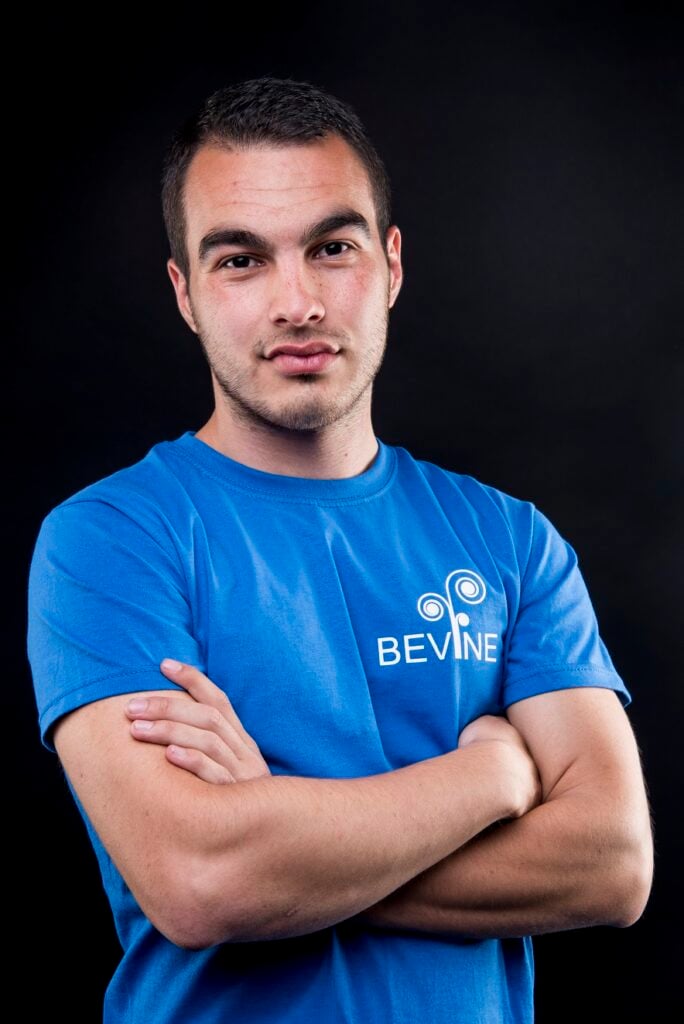You may have heard the tale of a turkey, fed for 999 days by a farmer, each passing day affirming the turkey’s belief for the farmer’s love and respect. However, on the 1000th day, just before the holidays, the turkey had to deal with a big surprise…
There is the Bulgarian proverb “Too much good isn’t a sign of anything good” and it looks like that the turkey from Nasim Taleb’s story was not familiar with it. Moreover, the turkey had mistaken the world of uncertainty with one of the calculated risks. The turkey’s illusion doesn’t appear so often in turkeys, but mostly in people. We often need to go beyond expectations and this is the reason prediction capabilities are not enough. We have to tap into our intuition.
The most straightforward science-based advice one can give us when it comes to putting our intuitive thinking to use is as follows: ‘If you live in a highly uncertain world, make it simple. If you are in a world that’s very predictable, make it complex.’
What are the first steps to developing intuitive thinking?
The start of the new year is an excellent time for the development of a new skill and the first thing we need to accept in regards to intuition is that it is a skill indeed. A skill that can be learned. As a professional, I frequently use my gut feeling to say ‘yes’ or ‘no’ to an opportunity and in most cases it proves right. There is a term for a person’s strange ability to acquire psychic knowledge without knowing how or why they know something – claircognizance. We drive to work and we should turn right but for some reason, we continue straight, and later, while listening to the news later, we learn that there was high traffic on the route you miraculously avoided. This miracle also has a name and it is called intuition.
As a coach and NLP practitioner, I often see that the most supportive way for people to discover their own dose of intuitive thinking is through full presence, guided imagination, and visualization. What it creates for them it may be a shortcut to inner wisdom. Symbolic imagination is a limitless source of knowledge and insight, and I am glad to have seen many times how it can help people experience a profound change in mindset. Hence they find new perspectives for their future.
How startup leaders in Southeast Europe use intuition?
The president of the Association of Young Entrepreneurs of Serbia (AYES), founder and COO of Buildcon, a Serbian IT company, Ilija Dragisic has accumulated over 10 years of business experience. This experience is useful when it comes to intuitive thinking.
“The ability to recognize previous patterns and understand the circumstances is something that can give you an edge and sense in making a decision. I learned that we don’t need to jump on every opportunity – the ones that are actually inspiring shine bright and are easy to recognize. Sometimes I can let go and go with the flow and usually in that case I put a lot of trustworthiness in my team.”

For Greta Stefanova, the co-founder and CEO of WHISP, a platform created to simplify the process of accessing public healthcare abroad, intuition is an important theme when it comes to entrepreneurship, and for her, it is all about solving problems by taking risks and jumping into the unknown.
“Intuition should accompany every decision in order to help minimize any possible negative effects in the short term if you envision a better outcome in the long run. Rationality is necessary in business but when combined with sagacity, it gives a wider perspective. What seems like a good option today, it might be a horrible one tomorrow in today’s fast-paced environment. Sometimes the best ideas fail because of the wrong timing or approach, the right people learn to adapt.”

Blagoi Anastasov, co-founder of Bevine, a IoT startup that provides data analytics for winemakers, approaches intuition as a combination of knowing the past, feeling ‘the now’, and seeing the future.
“I have always made my decisions based on the intuition I have and the frame that I put around it. It helped me in adapting my background in software engineering to the wine sector. It starts with intuition, then, rationality comes into the game and adds value to the reasoning process for decision-making. Running a young startup enables me to cross borders that I never previously thought of and I like the fact that I have complete responsibility for my decisions.”

Obviously, startup founders use intuition as a soft skill, merging it with the “hard” skill of their professional expertise. While they feel comfortable discussing it, it turns out that this is not usually the case in the corporate world. An interesting fact is that over 50% of the top corporate leaders use intuition, although, they would rarely admit it in public. There is the fear of responsibility if something goes wrong, so leaders have invented different strategies to overcome this concern. One way is to find reasons after a given event. Another, a more expensive one, is to hire a consultancy, to write a 200-page document just to justify the gut feeling. The most expensive alternative is the ‘defensive decision making’, which hurts the company and protects only the one making the decision.
Nonetheless, from unconscious to conscious, from feeling to knowing, from calculation to prediction, from probability to heuristics, intuitive thinking is available to all of us. We can use it and we’d better do so.
How To Hone That Skill?
Cecilia Yeung, a Canadian coach with 25 years of experience in business functions, reiterates the opinion that many C-level directors use intuition in decision making, and they are either not consciously aware of using it or they do not talk too much about it for fear of being mocked.
The premise of Yeung’s process is that people already have the answers and by using mind and intuition techniques, they will be able to see far beyond the plethora of information available in the external environment.
According to her, any leader with a successful track record will know that even when the evidence points the contrary, certain decisions made from a hunch or trusting an inner voice have revealed to be more accurate. For some, “accessing one’s intuition may be as simple as quieting the mind or ascending to a meditative state. For others, it may be engaging in activities that suspend the rational mind’s incessant thoughts such as walking in nature, surfing, or listening to music. The focus should be on seeking validation from our internal channels of information, which includes our subconscious mind,” Yeung says.
Tapping into this unconventional approach is intriguing as one builds a relationship with the powerful subconscious. Here are a couple of tips from Cecilia Yeung on how to improve your intuitive thinking:
- Make meditation a regular practice, even if it’s just for a few minutes a day.
- Take ‘alpha’ breaks – the relaxed brain state before waking up or while daydreaming.
- Look out for symbols in dreams and moments of waking. Our subconscious does not communicate with language but with metaphors, and archetypes.
- Code your subconscious for answers by giving it instructions before going to sleep. Your dreams may be able to reveal powerful insights.
- ‘Program’ the mind with affirmations. ‘I don’t have enough time’ is a typical program that we run on repeat that can be rewritten to ‘I am using my time wisely’.
Before Going All Out To Intuition
When learning about intuition as a business tool, be sure to keep in mind a few scientifically proven thoughts:
- Intuition in one field does not guarantee good intuition in another domain;
- Intuition leads to cognitive and social biases, like the anchoring effect, in which decisions are swayed by the first piece of information thrown at us;
- Stress triggers heuristic thinking but it reduces more sophisticated intuitive processing;
- We tend to get overly attached to intuitive beliefs;
- Intuition is most efficient when we don’t think about it too much.
Intuition is a good tool to have under our belt and this brings us some relief as we start 2021. It could serve us as a torch but we have to discover it as a lantern before that. It stems from our experience and offers us confirmation in the present moment and in our attempts to sense the emerging future. That said, whether we should trust our intuition depends on the structure of the domain we are operating in. The big practical goal in utilizing intuition in business would be to avoid confusing scenarios of uncertainty with such of calculated risk.







